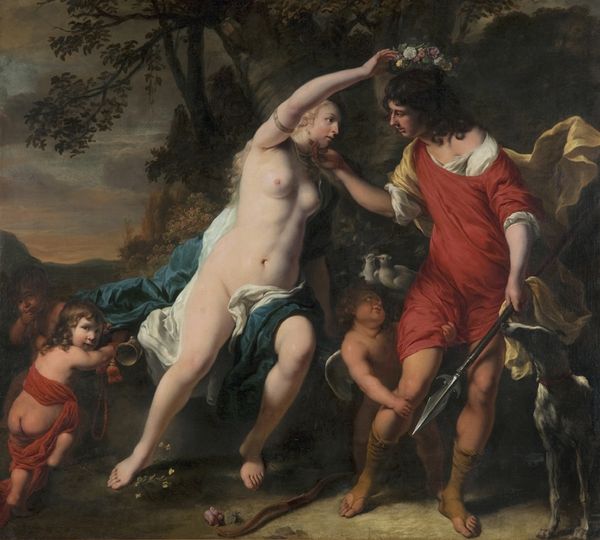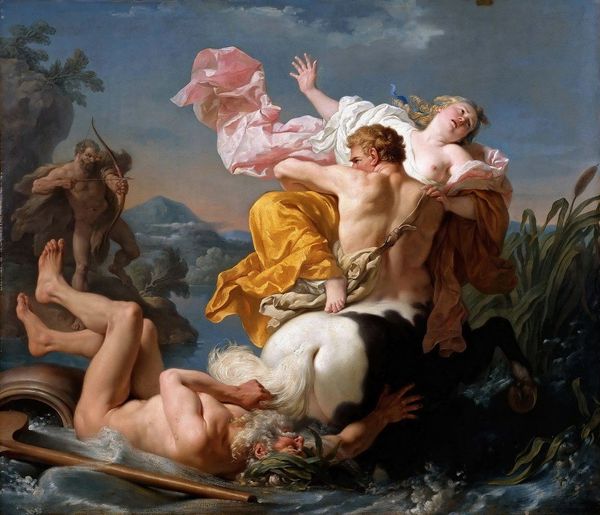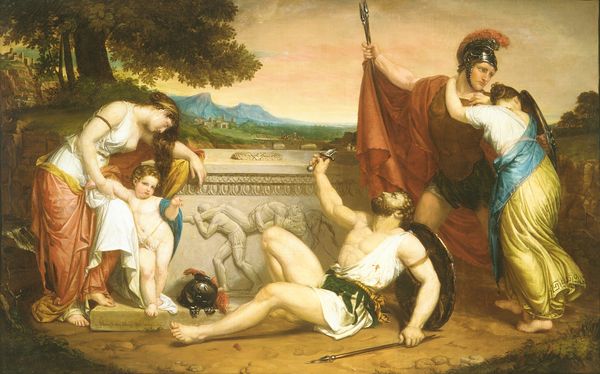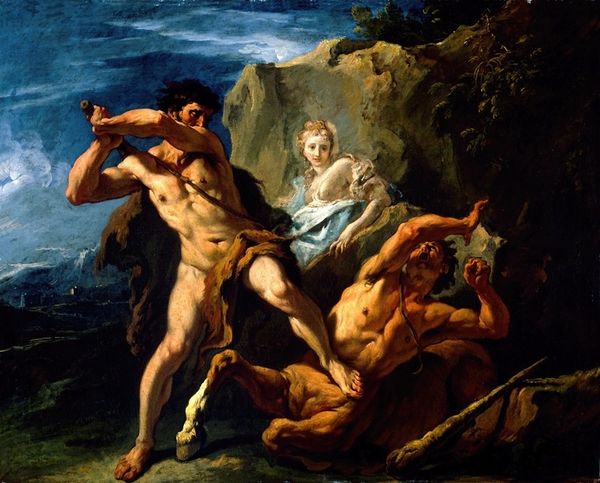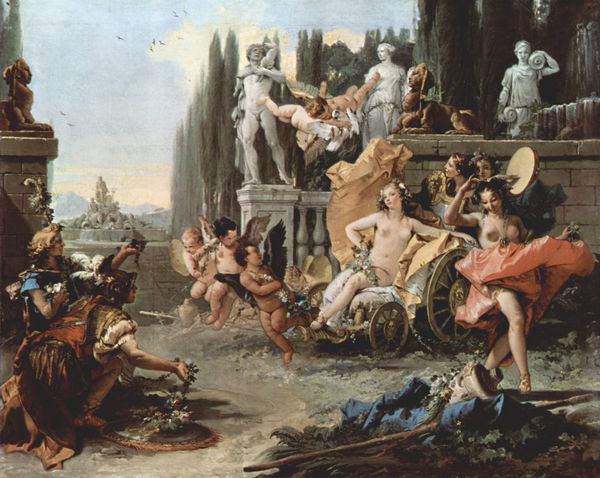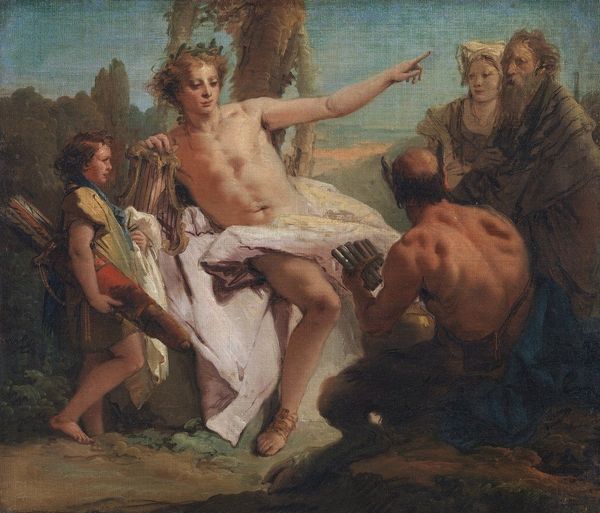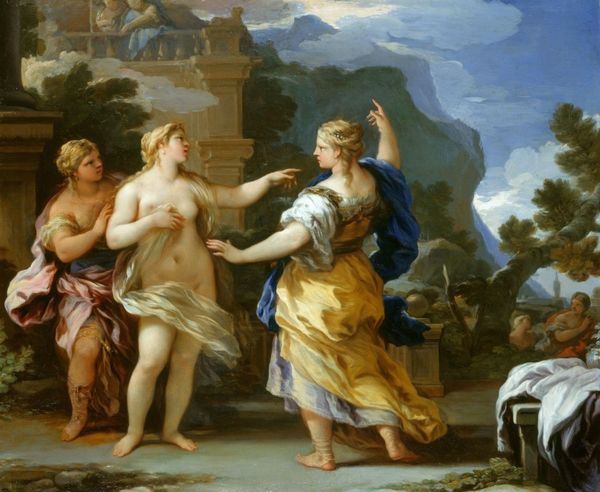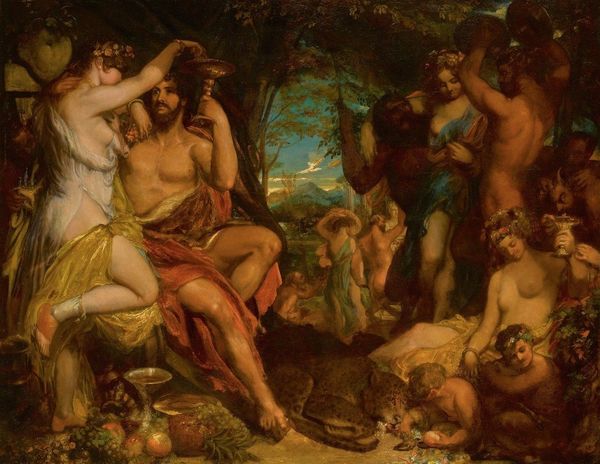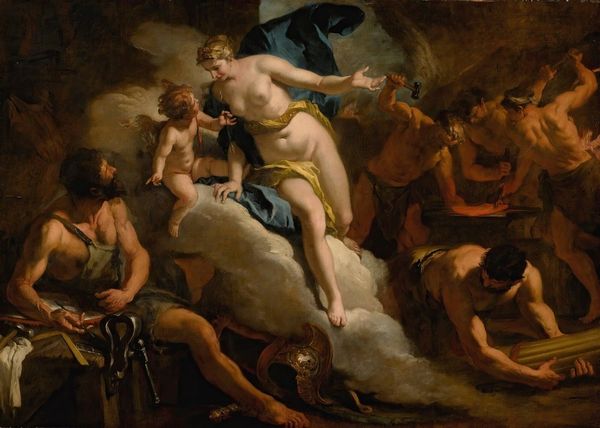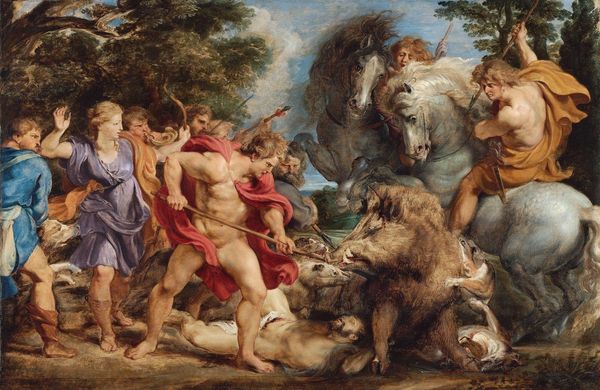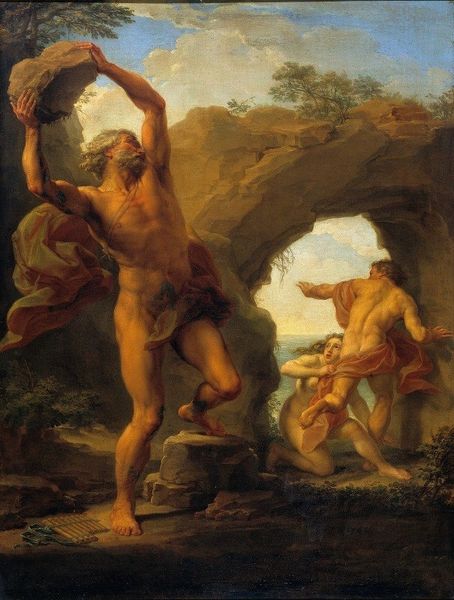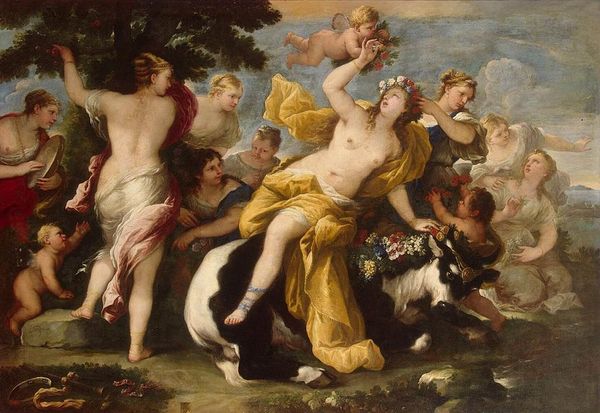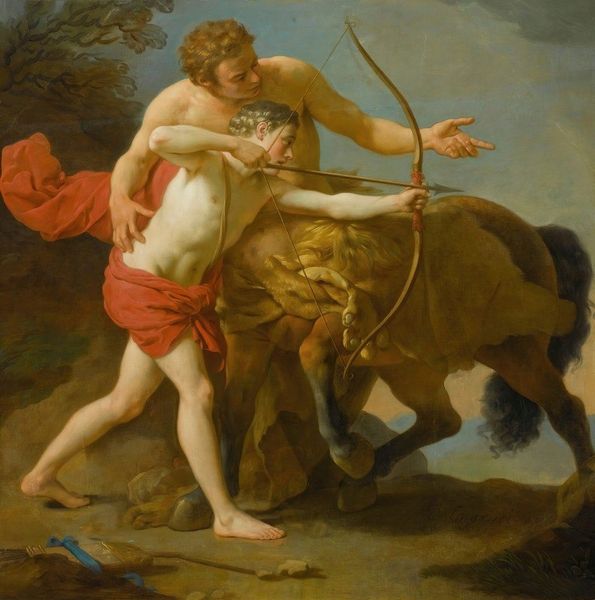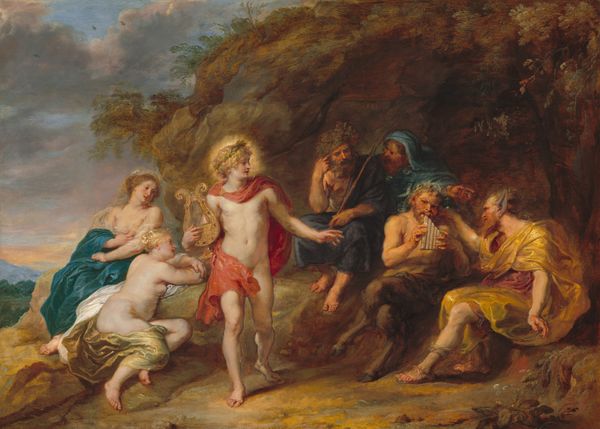
oil-paint
#
allegory
#
oil-paint
#
landscape
#
oil painting
#
mythology
#
history-painting
#
nude
#
rococo
Copyright: Public Domain: Artvee
Curator: Oh, my goodness, the light in this painting practically sings! It feels like staring straight into a sunbeam after a long winter. Editor: This is Giovanni Battista Tiepolo's "Apollo Pursuing Daphne," oil on canvas, painted sometime between 1755 and 1760. A fine example of rococo style, wouldn't you say? Tiepolo secured an international reputation and worked throughout Europe for aristocratic patrons and in churches. Curator: Rococo indeed! It’s got that frivolous, flirtatious energy bubbling beneath the surface, even amidst the chaos of a chase scene. What I love is how he makes the myth so... human. It's less about grand pronouncements from on high and more about a very awkward, very public rejection. Editor: Myth and mortality –always potent themes. Apollo, god of light and order, is undone by Daphne’s refusal. Note how the painting foregrounds her transformation, literally becoming rooted in the earth to escape his pursuit. A rather unsubtle commentary, perhaps, on power, agency, and nature. Curator: See how Daphne raises the laurel branches heavenward? Like, "Take *that*, sunshine boy! I’d rather be a tree than your trophy!" I almost want to cheer for her. She takes on that luminosity of his but deflects it on her own terms. Clever girl! Editor: The landscape is integral too. It's not just a backdrop, but an active participant, a silent witness. And you have that fascinating interplay of water, bodies, and cloth spilling out of the painting frame, typical for history paintings to illustrate the excess of its sponsors Curator: And what about Father River in the left-hand corner. With that chubby cupid clinging to him and Daphne's shapeshifting into something other and utterly indifferent to Apollo's pointed fury. Beautiful. One always feels, as with a love story, is to choose well. The scene feels so dynamic and even dramatic to the human observer of all eras and epochs. Editor: There are several important discussions about the nature and agency within such images. Tiepolo's composition invites us to engage in that discourse Curator: Well, for me, the heart of it is about knowing oneself. Maybe Apollo never really *saw* Daphne. And maybe, just maybe, this painting invites us to do a little more looking. Editor: A potent perspective that surely will trigger debate today, offering each an alternate perspective of their own mortality in these halls.
Comments
No comments
Be the first to comment and join the conversation on the ultimate creative platform.
